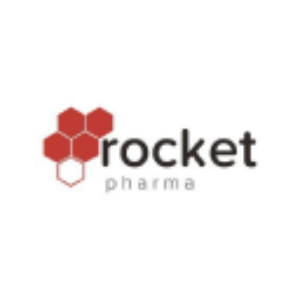Rocket Pharmaceuticals Announces Positive Clinical Data from RP-L201 Trial for the Treatment of LAD-I at the 28th Annual Congress of the European Society of Gene & Cell Therapy (ESGCT)
—RP-L201 is well tolerated and leads to durable CD18 expression and consistent peripheral vector copy numbers in seven of the initial seven patients with follow-up ranging from 3 to 18 months —
— Positive data updates show initial clinical benefit with no patients requiring hospitalization to date for LAD-I related infections following hematopoietic reconstitution —
“We are excited to share positive data updates from our Phase 1/2 trial for LAD-I and are pleased to report that in each of the initial
A Phase 1/2 Study of Lentiviral-mediated Ex-vivo Gene Therapy for Pediatric Patients with Severe Leukocyte Adhesion Deficiency-I (LAD-I): Interim Results
The data presented at ESGCT are from the initial seven patients with severe LAD-I, as defined by CD18 expression of less than
Preliminary efficacy was evident in all seven patients, including two patients with at least 12 months of follow-up. All seven patients demonstrated durable neutrophil CD18 expression that exceeded the 4
-
18 months post-treatment, Patient 1001 demonstrated sustained CD18 expression in
43.7% of neutrophils, peripheral blood VCN levels of 1.43 copies per genome and resolution of pre-existing skin lesions. -
9 months post-treatment, Patient 1004 demonstrated sustained CD18 expression in
28.2% of neutrophils and peripheral blood VCN levels of 0.88 copies per genome at 12 months post treatment. -
9 months post-treatment, Patient 2006 demonstrated sustained CD18 expression in
70.9% of neutrophils and peripheral blood VCN levels of 2.49 copies per genome. -
6 months post-treatment, Patient 2007 demonstrated
86.6% neutrophil CD18 expression and peripheral blood VCNs of 2.4 at 3 months post treatment. -
6 months post-treatment, Patient 2008 demonstrated
51.6% neutrophil CD18 expression and peripheral blood VCNs of 1.38 at 3 months post treatment. -
3 months post-treatment, Patient 2005 demonstrated
51.2% neutrophil CD18 expression and peripheral blood VCNs of 0.79 at 6 months post treatment. -
3 months post-treatment, Patient 2009 demonstrated
25.6% neutrophil CD18 expression and peripheral blood VCN levels of 0.54.
Information about Rocket’s RP-L201 clinical program is available here.
Rocket’s LAD-I research is made possible by a grant from the
About Leukocyte Adhesion Deficiency-I
Severe Leukocyte Adhesion Deficiency-I (LAD-I) is a rare, autosomal recessive pediatric disease caused by mutations in the ITGB2 gene encoding for the beta-2 integrin component CD18. CD18 is a key protein that facilitates leukocyte adhesion and extravasation from blood vessels to combat infections. As a result, children with severe LAD-I are often affected immediately after birth. During infancy, they suffer from recurrent life-threatening bacterial and fungal infections that respond poorly to antibiotics and require frequent hospitalizations. Children who survive infancy experience recurrent severe infections including pneumonia, gingival ulcers, necrotic skin ulcers, and septicemia despite frequent antimicrobial use. Without a successful bone marrow transplant, mortality in patients with severe LAD-I is 60
About
Rocket Cautionary Statement Regarding Forward-Looking Statements
Various statements in this release concerning Rocket’s future expectations, plans and prospects, including without limitation, Rocket’s expectations regarding its guidance for 2021 in light of COVID-19, the safety and effectiveness of product candidates that Rocket is developing to treat Fanconi Anemia (FA), Leukocyte Adhesion Deficiency-I (LAD-I), Pyruvate Kinase Deficiency (PKD), Infantile Malignant Osteopetrosis (IMO) and Danon Disease, the expected timing and data readouts of Rocket’s ongoing and planned clinical trials, Rocket’s plans for the advancement of its Danon Disease program following the lifting of the FDA’s clinical hold and the safety, effectiveness and timing of related pre-clinical studies and clinical trials, may constitute forward-looking statements for the purposes of the safe harbor provisions under the Private Securities Litigation Reform Act of 1995 and other federal securities laws and are subject to substantial risks, uncertainties and assumptions. You should not place reliance on these forward-looking statements, which often include words such as "believe," "expect," "anticipate," "intend," "plan," "will give," "estimate," "seek," "will," "may," "suggest" or similar terms, variations of such terms or the negative of those terms. Although Rocket believes that the expectations reflected in the forward-looking statements are reasonable, Rocket cannot guarantee such outcomes. Actual results may differ materially from those indicated by these forward-looking statements as a result of various important factors, including, without limitation, Rocket’s ability to monitor the impact of COVID-19 on its business operations and take steps to ensure the safety of patients, families and employees, the interest from patients and families for participation in each of Rocket’s ongoing trials, our expectations regarding the delays and impact of COVID-19 on clinical sites, patient enrollment, trial timelines and data readouts, our expectations regarding our drug supply for our ongoing and anticipated trials, actions of regulatory agencies, which may affect the initiation, timing and progress of pre-clinical studies and clinical trials of its product candidates, Rocket’s dependence on third parties for development, manufacture, marketing, sales and distribution of product candidates, the outcome of litigation, and unexpected expenditures, as well as those risks more fully discussed in the section entitled "Risk Factors" in Rocket’s Annual Report on Form 10-K for the year ended
View source version on businesswire.com: https://www.businesswire.com/news/home/20211020005316/en/
Media
Director, Corporate Communications
kgiordano@rocketpharma.com
Investors
Director,
investors@rocketpharma.com
Source:







